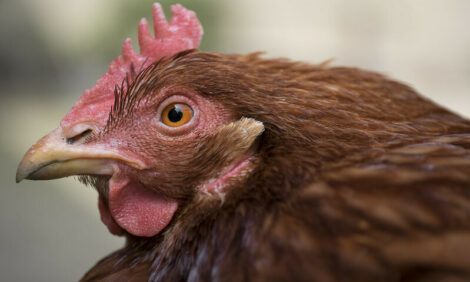



This Week's Poultry Industry News
ANALYSIS - Mexico, a country whose population tops the world egg consumption rankings, has been hit by highly pathogenic avian influenza in the last month. So far, 33 egg farms in the central state of Jalisco have been affected and an estimated 3.8 million birds culled. Imports have been boosted to meet demand and supplies of vaccine are being secured, in addition to the usual biosecurity precautions.In the US, widespread drought has further reduced this year’s corn and soybean yield forecasts, putting an end to hopes of any imminent easing in global feed prices.
From the most recent report from the World Organisation for Animal Health (OIE), dated 16 July, 305 poultry farms have been sampled for highly pathogenic avian influenza (HPAI) in the Mexican state of Jalisco, which is the centre of the country’s egg industry. The first outbreaks are reported to have started on 13 June. The virus, of the H7N3 subtype, was isolated in 33 farms; diagnosis was ongoing in other 166 and 106 have tested negative to H7N3 virus. The population at risk in these 305 farms amounts to about 17 million birds, of which 60 per cent of commercial farms, 24.6 per cent broilers, 8.5 per cent of backyard poultry and 6.9 per cent of breeders, according to the report sent to the OIE.
As part of the measures taken to reduce the risk, the buffer zone had already been extended to an area of about 22,000 square kilometres. As the result of depopulation of the poultry farms, around 3.8 million birds have been slaughtered and destroyed of an affected population of 9.3 million birds. Control measures on the movement of birds, their products and by-products were in place in the quarantine area and 22 check and surveillance points had been established – 14 around the perimeter and eight inside.
To prevent the disease from spreading further, authorities announced they had acquired about two million doses of vaccine from China through the middle of July, and National Health, Food Safety and Food Quality Service (SENASICA) director has said Mexico expects to have about six million does available by the end of the month.
Mexico’s government has taken action to prevent price speculation on eggs after prices took a jump after the first outbreaks were reported and expanding the supply of eggs by temporarily increasing imports for this year.
This latter decision did not sit well with the Mexican poultry industry. Ricardo Estrada, president of the Asociación de Avicultores de Tepatitlán said the imports are a new threat to Jalisco poultry producers, who already have to deal with the outbreak of avian flu.
He blamed authorities in neighbouring states for contributing to the price speculation by banning imports of eggs and poultry products from Jalisco, regardless of whether they came from the infected farms. Meanwhile, he and other local leaders are pushing for the state and federal governments to create a special contingency fund to compensate the affected poultry producers and the workers who have lost their jobs as a result of the outbreak. By some estimates, the outbreak has already cost 1,800 jobs.
SENASICA has since expanded the scope of review into areas adjacent to the initial quarantine area in order to protect the birds in the buffer zone.
It has stated that the H7N3 influenza virus poses no risk to humans, whether they are in contact with birds or poultry products, such as meat and eggs, and that the control measures are intended to protect the commercial poultry production in the area.
Furthermore, SENASICA has conducted a working meeting with laboratories in the veterinary pharmaceutical industry involved in the production of H7N3 avian influenza vaccine to contain the H7N3 outbreak.
It was confirmed that three laboratories – Avimex, IASA and Ceva – will manufacture some 80 million doses of the vaccine in Mexico. Those will be available later this month to protect a population, initially, of 40 million birds. The production capacity of those companies may reach 350 million doses per month. Merial Mexico has indicated that the company is manufacturing 12 million doses of the vaccine in the European Union.
Turning to news of bird flu in other countries, the confirmation of H5N1 virus in a swab sample collected from a bird cage in a pet shop in Hong Kong on 5 July has led to the temporary closure of a local market. The H5N1 virus has also been found in 38 birds intercepted at Taiwan Taoyuan International Airport on 7 July 2012; the birds were being smuggled by a passenger travelling from Macao to Taiwan and euthanised immediately. Authorities in Nepal have declared the country to be bird flu-free.
And finally, in other news, Bob Ingham, the long standing and sole shareholder of Inghams Enterprises Pty Ltd of Australia, has decided to sell the business.
The US poultry industry has signalled its satisfaction in response to the final action by the Environmental Protection Agency (EPA) on a 2011 proposed rule that would have required Concentrated Animal Feeding Operations (CAFOs) to submit information to the Agency regardless of whether or not they discharge to a water of the US.
Also in the US, widespread drought conditions continue to reduce the 2012 corn and soybean yield potential. This will do nothing to reduce the prices and volatility of feed prices across the globe in the coming months.








